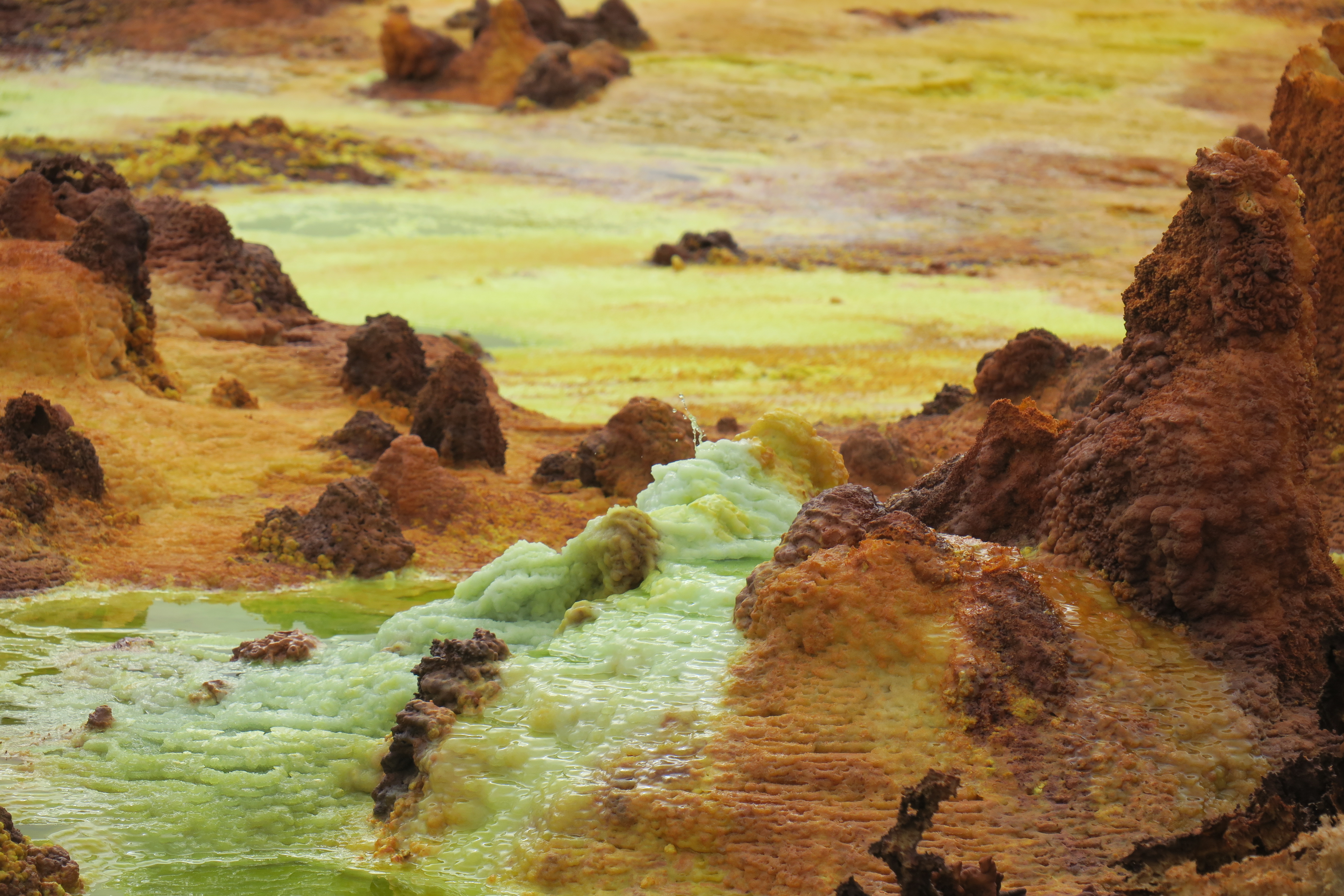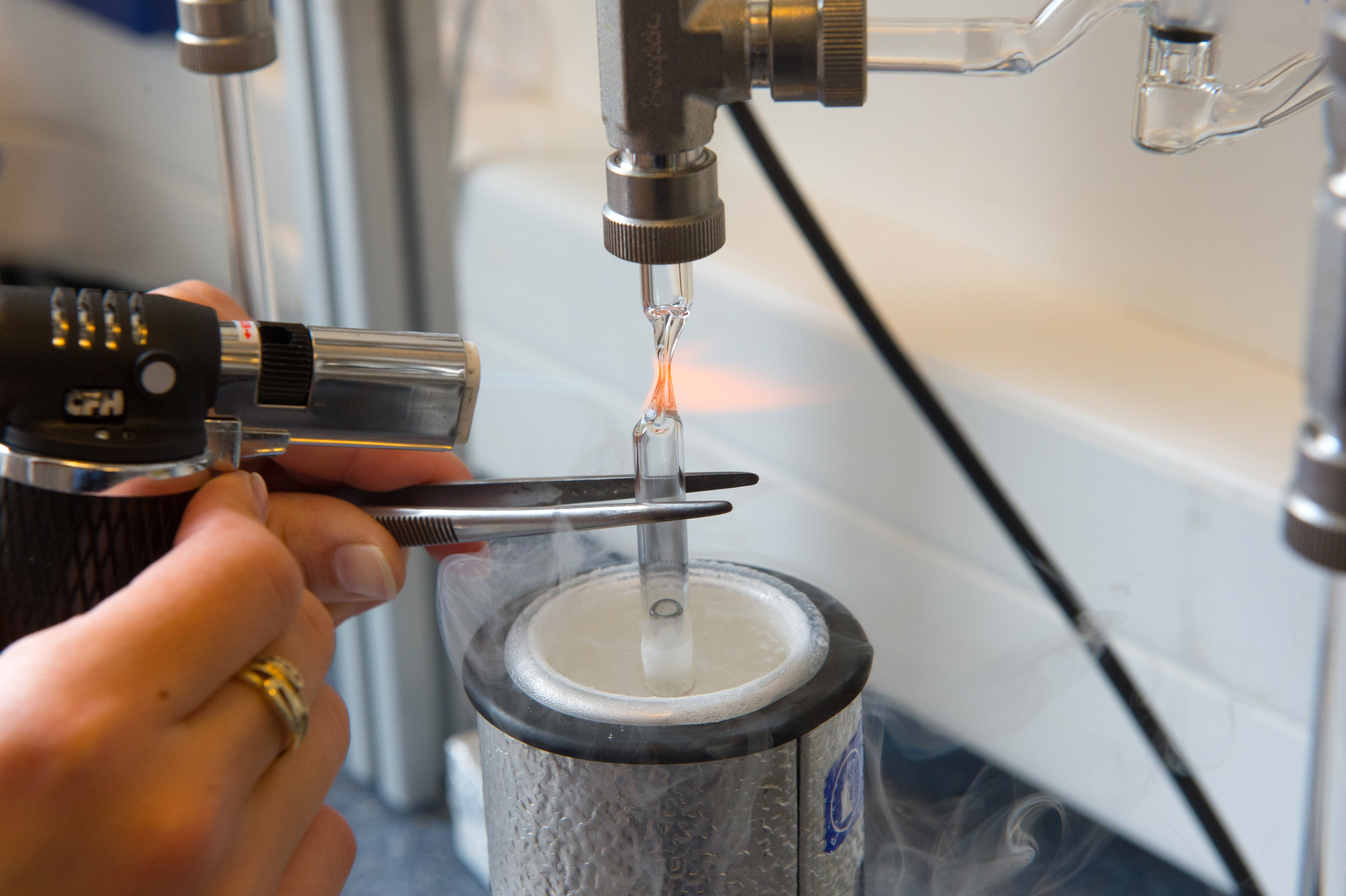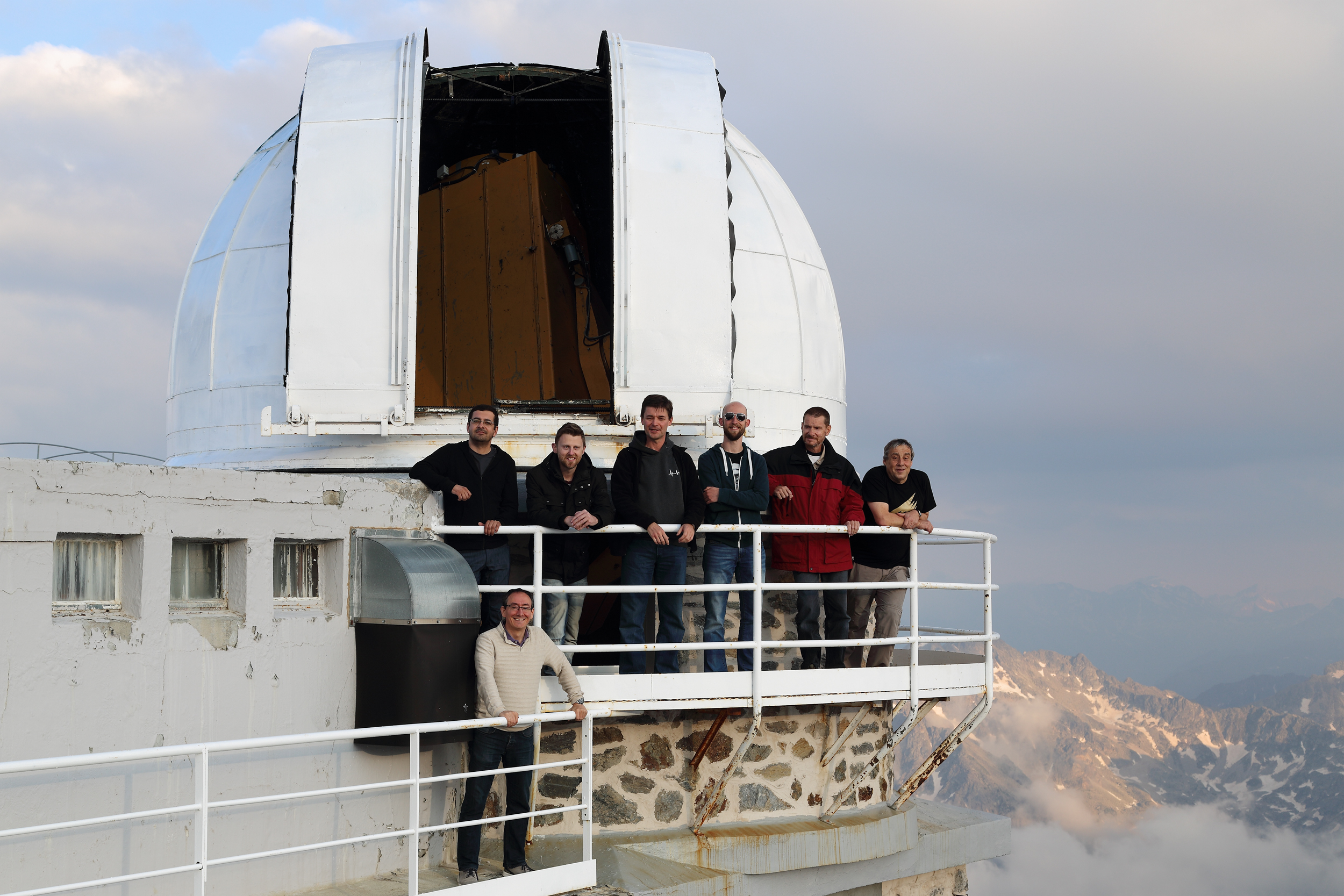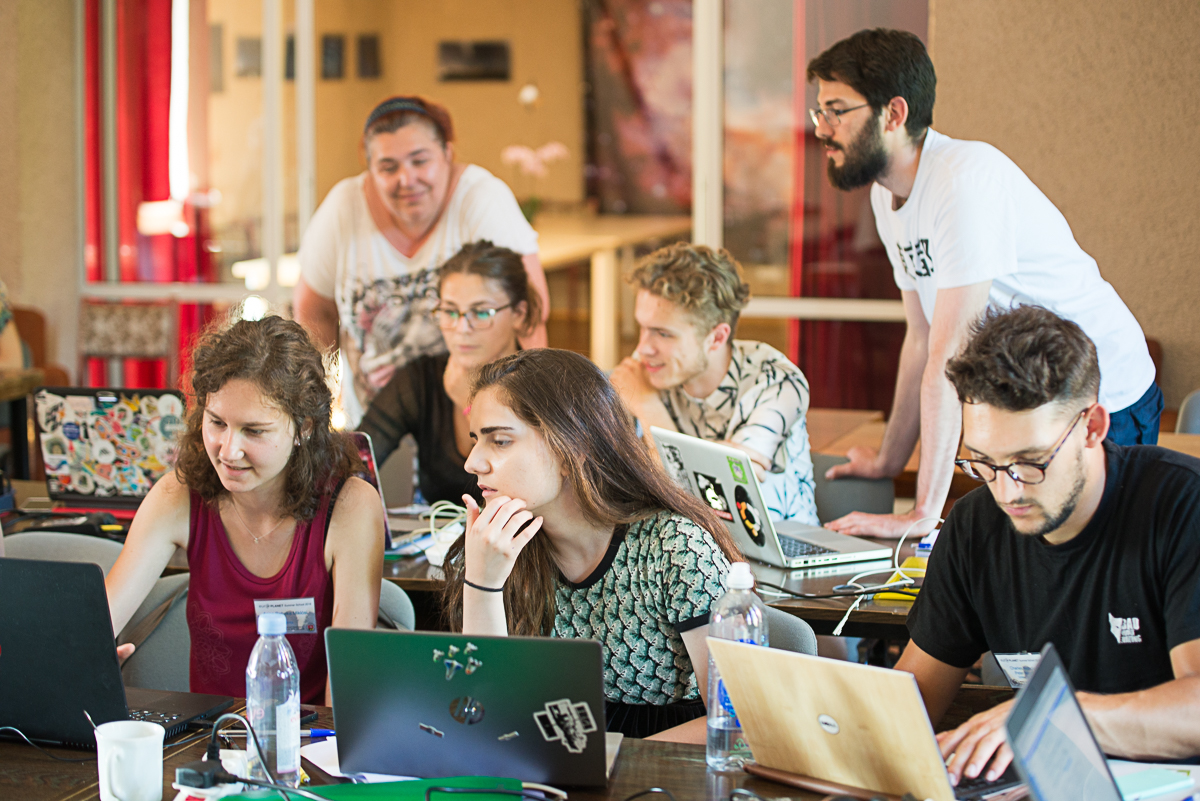
Europlanet launches 10M Euro research infrastructure to support planetary science
Europlanet has launched a 10 million Euro project, the Europlanet 2024 Research Infrastructure (RI), to provide open access to the world’s largest collection of planetary simulation and analysis facilities, as well as a global network of small telescopes, data services, and community support activities. Europlanet 2024 RI aims to widen participation in planetary science and provides the infrastructure to address key scientific and technological challenges facing the planetary research community.
The project is funded through the European Commission’s Horizon 2020 programme and will run for four years from February 2020 until January 2024. The Europlanet 2024 RI consortium is led by the University of Kent, UK, and has 53 beneficiary institutions from 21 countries in Europe and around the world, with a further 44 affiliated partners.
“This is a step-change in ambition for Europlanet, involving 60% more partners and expanding our collaborations in Africa and, for the first time, in Asia,” said Prof Nigel Mason, the Coordinator of Europlanet 2024 RI and President of the Europlanet Society. “The project will draw on the resources of the Europlanet Society, launched in 2018, to disseminate activities and outcomes and develop a more diverse community of users.”
Europlanet 2024 RI will provide the planetary community with free ‘transnational access’ to 24 laboratories in Europe and five field sites worldwide to carry out research projects.
Prof Gareth Davies, of VU Amsterdam, who leads the transnational access programme, said: “Europlanet 2024 RI has created a unique collection of field sites and laboratories to simulate and analyse planetary environments. Planetary missions over the next decade will study very diverse targets in our own Solar System and those around other stars. Europlanet 2024 RI has chosen a suite of facilities that can best help us understand the data sent back by spacecraft and plan for future missions.”
The five field sites offered by Europlanet 2024 RI stretch from Africa to the Arctic Circle and provide terrestrial analogues for planetary environments past and present, including the icy environments of Europa and Ganymede, geothermally active regions of Venus, Io and ancient Mars, and lava caves on the Moon or Mars that may house human habitats in the future.
Eleven laboratories provide simulation facilities for atmospheric and surface environments that do not exist on Earth, from the scorching surface conditions of Mercury and Venus, to low-pressure dust-storms on Mars, or the extreme cold of Uranus, Neptune and comets, as well as dust and particle accelerators to study impact and irradiation effects. A further 13 facilities offer capabilities to analyse the composition of planetary samples with high precision and using non-destructive techniques, and to detect and sequence microbial communities found living in hostile conditions on Earth.
Europlanet 2024 RI builds on the heritage of EU-funded projects dating back over 15 years. To harness collaborations developed between professional and amateur astronomers, Europlanet 2024 RI is launching a coordinated network of small telescope facilities around the world that can provide rapid response observations to support planetary missions.
The project will expand virtual access services to include a geological mapping portal, GMAP, and to exploit machine learning for automatic recognition and analysis of planetary data sets.
Over 30 databases will be added to the VESPA virtual observatory portal, which currently provides access to 54 planetary science data services derived from space missions, observation campaigns, modelling projects and laboratory experiments. Europlanet 2024 RI will also extend its planetary space weather service, SPIDER, to provide predictions and alerts for spacecraft operations in response to solar activity and support science data analysis.
To bring in new users, support the community and raise awareness of planetary science, Europlanet 2024 RI will organise training and workshops to engage industry, policy makers, early career professionals and researchers from countries that are under-represented in planetary science, both in Europe and around the world. The project will also trial a reciprocal access agreement with Chinese and Korean research facilities.
Prof Barbara Cavalazzi of the University of Bologna, who leads global collaboration activities for Europlanet 2024 RI, said: “We aim to help create a more interconnected global planetary science community and support sustainable development around new facilities, recognising the unique contribution of each community involved and building collaborative research and outreach programmes.”
Video:
Video of the Iceland transnational access facility offered by Matis. Credit: Europlanet/madebygravity.co
Images:
Europlanet 2024 RI provides access to the planetary field analogue site at the Danakil Depression in north-eastern Ethiopia, including the Dallol volcano and its adjacent areas. The site provides a natural and complex analogue for extreme planetary environments linked to transient lakes and hydrothermal vents, the latter representing analogues of Venus, Io, Ganymede and other satellites where water is pumped to the surface in tectonically active settings. Sulphate deposits in the region also appear to have direct analogues on Mars. Credit: B. Cavalazzi

https://www.europlanet-society.org/wp-content/uploads/2020/02/fig-6.jpg
Europlanet 2024 RI provides access to 24 laboratory simulation and analysis facilities, including the Isotoptech Carbon-14 dating accelerator mass spectrometry (AMS14C) facility. Credit: Isotoptech Zrt.

https://www.europlanet-society.org/wp-content/uploads/2020/02/amsc14_3.jpg
Collaborations between professional and amateur astronomers developed by Europlanet over recent years have led to the establishment of a network of small telescopes under Europlanet 2024 RI to support space missions with rapid-response ground-based observations. Credit: Ricardo Hueso.

https://www.europlanet-society.org/wp-content/uploads/2017/07/IMG_5483b2.jpg
Europlanet 2024 RI will provide training and workshops to widen participation in planetary science from under-represented countries and support early career researchers. Credit: Andrius Zigmantas.

https://www.europlanet-society.org/wp-content/uploads/2018/08/DSC1065.jpg
Further information
First Call for Transnational Access: [Link]
The Beneficiaries of Europlanet 2024 RI
Austria: Österreichische Akademie de Wissenschaften, KNOW Center Graz, Medizinische Universität Graz. Belgium:Institut d’Aéronomie Spatiale de Belgique. Botswana: Botswana International University of Science and Technology. China: China University of Geosciences (Beijing), Peking University, Shandong University, National Space Science Center, Chinese Academy of Sciences. Czech Republic: Ústav fyziky atmosféry AV ČR. Denmark: Aarhus Universitet. Ethiopia: University of Mekelle. Finland: Ilmatieteen Laitos. France: ACRI-ST, Centre National de la Recherche Scientifique., European Science Foundation, Observatoire de Paris, Office National d’Etudes et de Recherches Aérospatiales, Spacefrog Design. Germany: Deutsches Zentrum für Luft-und Raumfahrt, Jacobs University, University of Passau, Westfälische Wilhelms-Universität Münster. Greece: European Institute of Law, Science and Technology. Hungary: Atomki, Isotoptech, Wigner RCP. Iceland: Matís Ohf. Italy: Istituto Nazionale di Astrofisica, Universita Degli Studi Gabriele D’annunzio di Chieti-Pescara, Università di Bologna, University of Padova. Korea: National Facilities and Equipment Center in Korean Institute. Lithuania: Vilniaus Universitetas. Netherlands: Stichting VU. Poland: Uniwersytet Im. Adama Mickiewicza W Poznaniu, Centrum Badan Kosmicznych Polskiej Akademii Nauk. Russian Federation: M.V. Lomonosov Moscow State University. Slovakia: Comenius University of Bratislava. Spain: Centro de Astrobiologia-CAB (CSIC-INTA), Universidad Del Pais Vasco/Euskal Herriko Unibertsitatea. Sweden: Institutet För Rymdfysik, Luleå University of Technology. Switzerland: ETH Zurich. UK: University of Kent, Armagh Observatory and Planetarium, Blue Skies Space Ltd, The Dill Faulkes Educational Trust Ltd, Natural History Museum, Open University, University College London, University of Edinburgh, University of Stirling.
Contacts:
Prof Nigel Mason
President of the Europlanet Society
Coordinator of Europlanet 2024 RI
University of Kent
Canterbury, UK
Email: N.J.Mason@kent.ac.uk
Professor Gareth R. Davies
Vrije Universiteit
Amsterdam, Netherlands
Email: g.r.davies@vu.nl
Prof Barbara Cavalazzi
Università di Bologna
Bologna, Italy
E-mail: barbara.cavalazzi@unibo.it
Media Contacts
Anita Heward
Communications Officer
Europlanet 2020 RI
Tel: +44 7756034243
About Europlanet
Since 2005, Europlanet has provided Europe’s planetary science community with a platform to exchange ideas and personnel, share research tools, data and facilities, define key science goals for the future, and engage stakeholders, policy makers and European citizens with planetary science.
The Europlanet 2024 Research Infrastructure (RI) has received funding from the European Union’s Horizon 2020 research and innovation programme under grant agreement No 871149 to provide access to state-of-the-art research facilities and a mechanism to coordinate Europe’s planetary science community. The project builds on a €2 million Framework 6 Coordination Action (EuroPlaNet), a €6 million Framework 7 Research Infrastructure (Europlanet RI) and a €10 million Horizon 2020 Research Infrastructure (Europlanet 2020 RI) funded by the European Commission.
The Europlanet Society promotes the advancement of European planetary science and related fields for the benefit of the community and is open to individual and organisational members. The Society’s aims are:
- To expand and support a diverse and inclusive planetary community across Europe through the activities of its 10 Regional Hubs.
- To build the profile of the sector through outreach, education and policy activities
- To underpin the key role Europe plays in planetary science through developing links at a national and international level.
Europlanet 2024 RI project website: www.europlanet-2024-ri.eu
Europlanet Society website: www.europlanet-society.org
Follow on Twitter via @europlanetmedia

